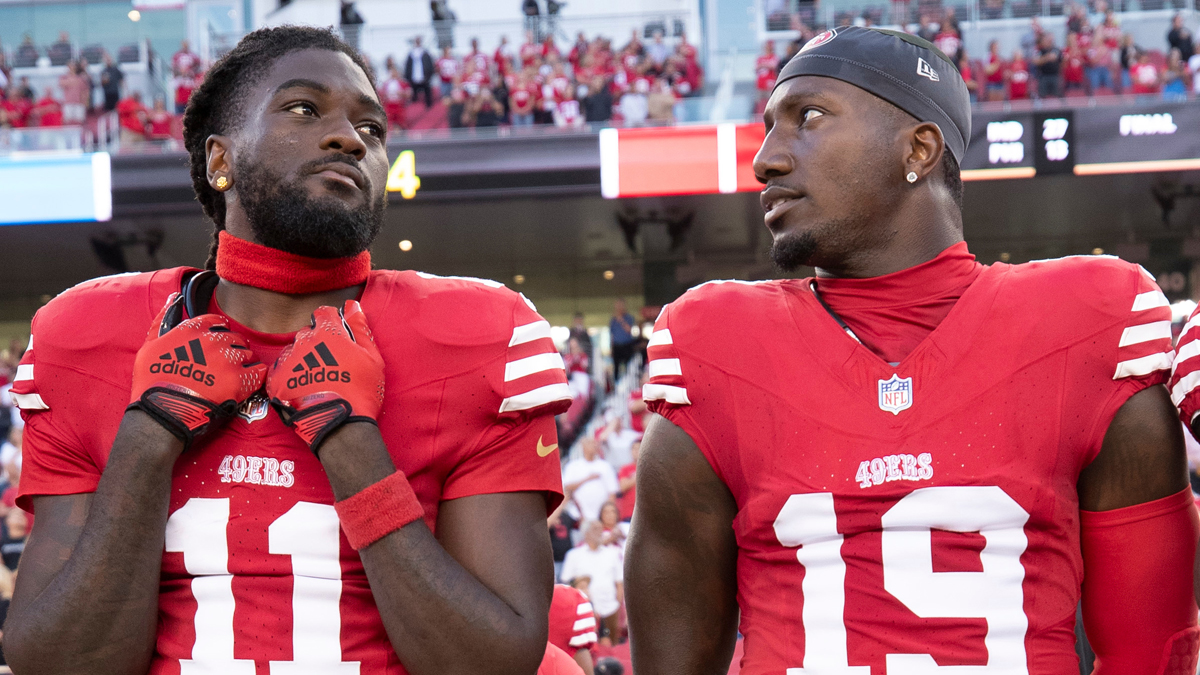One week ago, the Indianapolis Colts didn't have a single quarterback on their roster signed beyond the upcoming 2020 season.
A week later, that remains the case.
You don't often see QB-needy teams that are scheduled to pick in the top half of the first round of the NFL draft -- like the Colts were -- trade that highly-valued asset for a non-quarterback veteran. Even less often do you see that still QB-needy team then sign that non-QB to a massive contract extension, thereby taking up a large chunk of the salary cap space that could otherwise have been used to address the most important position on the field.
Stay in the game with the latest updates on your beloved Bay Area and California sports teams! Sign up here for our All Access Daily newsletter.
But that's exactly what Indianapolis did in trading the No. 13 overall pick of the 2020 NFL Draft to the 49ers in exchange for defensive lineman DeForest Buckner last week. In completing the trade, the Colts signed Buckner to a four-year, $84 million extension.
The following day, Indianapolis signed veteran quarterback Philip Rivers to a one-year, $25 million contract in free agency. Between Rivers, 38, and holdovers Jacoby Brissett and Chad Kelly, the Colts are spending more on the quarterback position ($47.125 million) than any other team this coming season -- and still don't have a single QB signed beyond it.
So, what exactly was Indianapolis' logic? There is a combination of factors, but ultimately it boils down to: The Colts don't think they're that far off.
After being blindsided by Andrew Luck's retirement just prior to the start of last season, Indianapolis actually got off to a 5-2 start before stumbling down the stretch. The Colts ultimately finished 7-9 and fell short of the playoffs for the fourth time in five seasons. Two teams they beat -- the Kansas City Chiefs and Houston Texans -- met in the AFC Championship Game, with the Chiefs going on to prevail over San Francisco in Super Bowl LIV.
San Francisco 49ers
The Colts are well aware that they'll be dealing with Super Bowl MVP Patrick Mahomes for many, many years to come, and according to The Athletic's Zak Keefer, they view Buckner -- who had 1.5 sacks and three hits on Mahomes in the Super Bowl -- as a necessary counter weapon, due to his proficiency as an internal rusher.
"And don’t think for a second Mahomes and [Texans quarterback Deshaun] Watson didn’t factor into this trade," Keefer wrote. "[Colts general manager Chris] Ballard knows the QBs in the AFC his team will have to face in the coming years, how dangerous they are in and out of the pocket and the quickest way to corral them: with pressure straight up the middle. That’s precisely how Buckner got a solo sack on Mahomes in the Super Bowl. That’s why the Colts brought him to Indy."
[RELATED: Armstead didn't want to leave 49ers, discusses DeFo trade]
To acquire a player of Buckner's caliber on the open market, Indianapolis reportedly figured the 49ers would ask for first- and second-round draft picks in return. So, the cost of directly dealing with San Francisco seemed far more appealing. Yes, it was the No. 13 overall selection, but one could argue the 49ers value that pick more highly than the Colts do. With Joe Burrow, Tua Tagovailoa and Justin Herbert -- the top three QB prospects -- all expected to get picked before the No. 13 overall selection, the chances were slim that Indianapolis was going to find its gunslinger of the future at that spot.
In acquiring Buckner and Rivers -- and the money spent to do so -- the Colts essentially are risking their long-term future for a chance at immediate contention. Ironically, one might characterize the 49ers' logic as the opposite.


